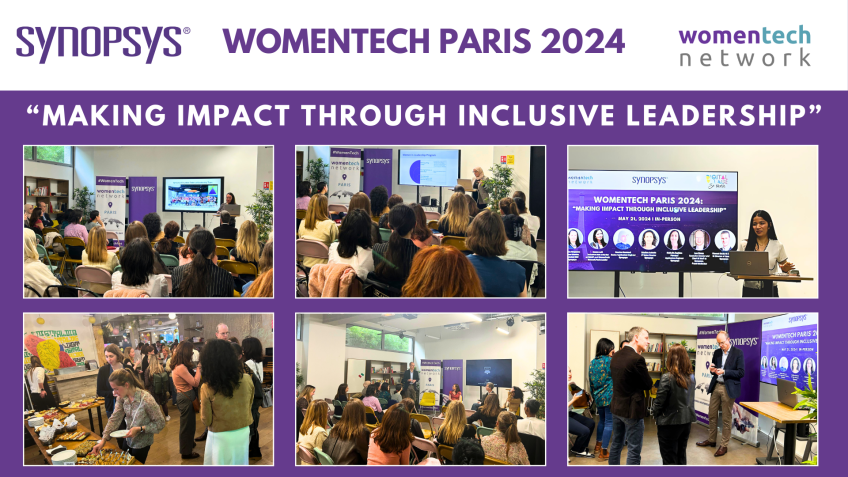Global Experiences in a Major Japanese Company by Debbie West
Being a Global Tech Executive: A Journey into the Bamboo Forest
My career in tech that started humbly as a developer and led me to become a global tech executive overseeing projects in North America and Japan. This journey, filled with incredible adventures and personal growth, can be likened to decoding the attributes of the bamboo tree - flexible, strong, and fast-growing. My time working for Toyota was significant in shaping my personal and professional journey.
Being like Bamboo: My Career Journey
My career, which involved my pioneering foray into Japan and my continuous involvement with technological advancements, has been a testament to the mindset of being like bamboo. This Japanese proverb implies adopting flexibility, strength, and rapid growth that bamboo signifies.
My journey began with building a strong foundation in Windows, UNIX, Linux, and enterprise architecture, culminating in handling global applications for Toyota. I have constantly looked ahead and planned for the future, personally and professionally. This forward-thinking approach and my sheer determination led me to live and work in Japan, bridging the tech and business worlds of Toyota.
Overcoming Adversity with Flexibility: Experience from Japan
Moving to Japan was a monumental personal and professional leap, packed with many firsts. It was in Japan that I truly learned the meaning of flexibility— of adapting to unforeseen situations and making the best out of them. I learned to adapt to cultural nuances, a challenging commute, and even typhoons. It was here that I truly embodied the spirit of the bamboo, bending but not breaking when faced with challenges.
Building Relationships: The Heart of a Global Career
Living in Japan, a key lesson was that a global career thrives on relationships. Understanding other cultures and building bridges of communication and cooperation were essential to success. The task of creating Toyota's global IT strategy required buy-in from CIOs from Japan, Asia, Pacific, Europe, and North America. The challenge involved aligning disparate views and leading several global trips. However, the silver lining was the establishment of strong global relationships.
Post my stint in Japan, I brought back the knowledge of agile methodology – Scrum. My global relationships significantly assisted in integrating agile ways into the Toyota system. The transformational change resulted in driving agility from 9% to 90% in North America and 50% globally.
Navigating Leadership: The Choice of the Heart
After a successful agile implementation, there was a need for reflection and planning the next steps. Discussions with mentors and my manager resulted in the identification of possible growth areas: consumer platforms for Toyota, data science, and cybersecurity.
My next role, leading the cybersecurity team, was a challenging yet rewarding experience. Managing a team that is constantly keeping pace with emerging threats paralleled the flexibility and rapid growth of bamboo.
Sponsors, Passions, and Being the Change
Mentorship and sponsorship play crucial roles in professional growth. Building a personal board of directors consisting of a diverse network can provide ice-breaking advice and creative insights. Life has been generous in my journey, presenting sponsors like my parents, my cross country coach, and my husband.
A key takeaway from my journey has been to do what you love. Prioritizing interests and pursuing them with passion is the secret to professional success. If one is not passionate about their work or feels uncomfortable, it's time to make a change.
Small Steps Towards Major Changes
Initiating change doesn't always require grand ideas. Starting small and being the change you desire can have profound results, as was clear from my experience of starting the women's business partnering group and the North American Women's Conference for Toyota.
Concluding Thoughts: Embrace the Bamboo Spirit
Embracing the bamboo spirit of flexibility, strength, and rapid growth has been instrumental in my journey as a global tech executive. So, let us all strive to be like a bamboo – adapting ourselves, empowering others, and growing beyond our limitations. Let's thrive on the passion of doing what we love, embodying the spirit of the bamboo, and aiming for excellence. This is your journey, own it, shape it, and be proud of it.
Video Transcription
So I've spent my career as Margo mentioned in the tech field, right?I started as a developer, I became a business analyst, a project manager and a manager of different applications such as things like windows, um applications and technologies like Windows, UNIX, Linux, enterprise architecture, uh all different kinds of things that actually led me to where I am here today, which is a global tech exec.
Um I've spent most of my career here at Toyota in North America. Uh I spent two years in Japan as well and I'd like to share with you today some of my experiences working for a global Japanese company. So I think the most important thing that I've learned is to be like bamboo. I took this photo while walking in the bamboo forest in Kyoto. It reminds me to be flexible, strong and fast growing and you can see it here in my background as well. Um I'm often asked, well, how did I get to live in Japan? Like, how did you get to have that kind of an opportunity? And I'm always looking a few years out, right? Both from a personal perspective and a professional perspective where's my work headed, where am I headed? And so it was during these discussions with my mentors and my direct manager that I started asking about a rotation, um opportunities maybe to work in Japan or take a rotation outside of it outside of the tech world and work in the business side of Toyota. I thought through it was through these relationships and through direct working relationships that I was asked to take an intercompany transfer to Japan for two years. I would work in a new global team to create Toyota's global it strategy. I was very excited. Fantastic.
After a few months of daily Japanese lessons off, I went but I wanna talk about a couple of first things um when it comes to bamboo, right? So there was a few firsts um that made me be more flexible. Uh My girlfriend and I were the first two girls on the boys cross country team. Uh My coach later started our high school's very first cross country team. I was also the first in my family to graduate from college and now the first senior it manager to go and live in Japan. And there's my personal first too to live in a different country. So this are a few of my friends from high school, a few of my first. But then, you know, as I started to think about Japan, um here I went around the world to Japan. I always say it was very hard and fun. At the same time, my husband and I decided together we would move to Japan. He's a battery science scientist. So it seemed likely that he'd be able to get a job and we'd be together. But as he looked for positions and we need time to leave, he still didn't have a job. So we decided that we would pick a centrally located place to live and keep options open for him.
He two weeks before I had to move to Japan, he was offered a position and join me in a couple of months on our journey. So that worked out great, but it was uh a little bit difficult and sweaty. Uh Thinking about moving to Japan without him. We lived in central Nagoya. So that meant I would ride three trains and take an hour and 20 minutes to get to work. I was ok with that. I was from L A where it was taking me more than an hour to get to work. So I thought at least my commute would be guaranteed in my first week at work though, there was a typhoon. I thought I was doing well. I put on my gear. I walked 10 minutes to the train station. I took three trains to get to work in and out of the typhoon. I was 100 m to the office when I turned the corner and my umbrella turned inside out, my hood blew off. I was soaked from head to toe in seconds and I learned a lot about being flexible like bamboo. On that day, I went into work and I noticed that all the other women had hair dryers, makeup change of clothes at work. That's a good idea. But I only had a change of socks. So I washed my face. I put my hair in a ponytail. I put on my dry socks and I went into work soaking wet. After that, I had to change my hairstyle. I bought different makeup.
I found myself some clothes that either dried fast or didn't change color when they got wet. Oh, and I bought a few umbrellas coming from Southern California. The only umbrella I owned was one that barely worked. It was stored in the trunk of my car and basically broken every time every other couple of years when I decided to take it out and use it in Japan. I found out I needed four kinds of umbrellas. A small holding one, a medium one, a very strong one with many times for large in a larger circumference to protect me from the typhoon. And of course, this umbrella for the summer. So in addition to making a few personal changes, I needed to make some schedule changes too, to support the global relationships, the relationships are super important. So that means a global career means a global schedule. As I bet many of you understand, as we're sitting here in a global conference. There's no good time in the US. Global meetings happen early in the morning. In Europe, they happen in the afternoon and in Japan, they happen late at night. So to build those relationships, you have to make yourself available, you can't just email people, you have to talk with them, you have to visit with them. You have to build strong relationships as you go.
So while I lived in Japan, I helped create Toyota's global it strategy to do that. We gained buy in from the CIO s from the four primary Toyota regions from Japan, Asia, Pacific, Europe and North America, we met with them. We, when they visited Japan, we visited them there in their space and we orchestrated these global cio meetings that you see here on the screen. This really took some strength um to get everyone align several around the world trips, some coffee, but not too much and some sleeping whenever I could. When I came from home, when I came home from Japan, though I wasn't really prepared for what might happen next. My primary focus was leading the North American project management office when I returned home from Japan. In addition, I started investigating agile time to be like bamboo again and grow fast. It turned out luckily for me though, it turned out, scrum was based on the Toyota production system and the Toyota way that was helpful and I already knew about those. So I sought out some scrum experts to learn from them. I met with Nanna or no, I'm sorry, Nanaka. So who is one of the co author of the new, new uh product development game.
And I met with him in Tokyo and during an interview with him, he shared that, that h his HBR article is actually based on Toyota's ways of working. So I began learning, teaching and showing how to change the work the way we work at Toyota. Because actually what he had based his Scrum article on was the Toyota production system in the plants. But in it and in the business, we didn't do Scrum or agile or very much of the Toyota way. As things started working in North America, I also knew I wanted to share this globally to help it grow globally. So no one was officially using agile. So I pitched it. I went to Japan. I shared our learnings in North America. At first, the global cio in Japan wasn't sure what I was talking about or how he could help. But because of our strong relationship and his experience seeing my work in Japan, he was willing to listen and willing to continue the dialogue with me. Over a few years, he saw our work grow kaizen, which means improve and deliver. He started pitching himself for agile. The global cio of Toyota was pitching agile because I planted the seed with him. So truly my relationships from living in Japan, open doors around the world that you can kind of see on this map.
So not only did I start with us and Japan, because I knew people all around the world from my living in Japan and working on the strategy, I was able to engage all of these other countries to work on this journey to agile. So navigating global leadership careers, it's all about relationship execution and enjoying what you do. It's not about promotions, by the way, it's about enjoying it. So after leaving several large programs including driving agility from 9 to 90% here in North America and 50% globally, I decided I should look at how to contribute more. So again, I talked to my boss, I talked to my mentors to gain their insights. I ended up developing a list of three growth areas for me. I started thinking about consumer platforms for Toyota data science and cybersecurity. So what happened? I started a position with the cybersecurity team, taking along my business acumen my agile experience and large program development and also my global experiences. I was able to start this job uh leading the cyber risk and operations management team. The team's fantastic, they're flexible agile, they're strong, smart, fast growing. Actually, no kidding. They have to keep up with the bad guys. So they must be fast growing. So tactically, how do I do these kinds of things? I wanted to share with you.
So you, you need to take feedback and advice. Uh You should build your own board of directors, your personal board of directors, consisting of your family, uh your parents, your mentors at work, your mentors outside of work, your friends, your teachers, um all of these different kinds of people will provide you different views into how you, how you can improve and things that you do.
Well, you also might need and you might need to be a sponsor, your sponsor for you needs to know your work and you should be a sponsor for others as well, right? We should always be giving back to who we are no matter what level you are in the organization. I really would not be where I am today without sponsors, as I mentioned, and people like my parents, my cross country coach and my husband. The other thing I think another thing I think is really important is for you to do what you love. I'm really, I feel strongly about this um that you have to be passionate and love your work. So you may love many things. That's, that's ok. I like a lot of things too. So you need to prioritize the things that you love and pursue them. So learning is key for me. I love to learn. I love to read technology and teamwork in family. So all of those things are very important to me. And so I weave them into what I do every day. I think the other thing that comes up is if you're uncomfortable with where you are today or if you're feeling difficulties about your job or about how you're interacting with others at work, then I think you should look and change to change your circumstance.
Start the change yourself, be the change, right? You guys all know that uh you don't have to have a big idea though. And I think that's what's really important. Never think about it that way. Think about the things that you can do, the things that you wanna do for yourself, for people and for your business. Here's what I did. Um I started uh the women's business partnering group in 2006. We started with five members. Um Our first event was 70 members. Actually, that event in the picture we had, that was a kickoff and 200 people showed up, you can see there was standing room only. So I didn't think that many people uh would begin today. We have more than 1000 members and on the right hand side, I also started the North American Women's Conference in 2011. Sorry, that was where we started with 70 attendees. Um We started with a small group. It wasn't a big giant idea. We 70 people was very manageable to us at the time. Now we have a conference held every year. I think this last year it was over 600 people and that also has people starting to come from around the world within Toyota. So this is a Toyota uh North America Women's Conference. So kind of enclosing. I want you to think about doing what you love, right? Prioritizing the things in your life, the things that are important to you and pursuing your in interest by doing excellent work.
I think all of these things that I've talked about kind of come together when you could show that through your work, through your outcomes, through your value. So be like bamboo, be flexible, be strong and be fast growing. Thank you. Thanks Margo.
Hi, Debbie. Thank you so much for sharing with us today. We have a lot of positive comments coming through in the chat, really agreeing with you when it comes to building relationships and cross culture. Um What when you're going through this experience and kind of sharing with us?
These, I like your um your comparison shall we say to bamboo? I'm doing this like I'm bamboo in the wind. Um What, what piece of your, of your journey and of these like these skills that you found in yourself? Really like resonated with you? Was there one thing that kind of really stood out even when you were saying like putting together this presentation for us?
Yeah, I think recognizing when I, when I was living in Japan, I didn't really recognize how important all the relationships were. I was kind of blind about that. I thought, ok, I'm gonna go live in Japan. I'm gonna be in Japan and then I'm gonna come home and kind of go back to my old job. But when I came back to my old job, I started doing it like I used to and then I started realizing, well, maybe I should contact somebody in Australia. I remember he did this before, or maybe I should contact somebody in Belgium because I remember that he had some experience. And so it was a surprise to me that this global network could be used to improve my work my day to day work and then eventually help me to spread improvement across Toyota. So I, I think that was really surprising to me. Um and I would want to share that so that people could be more proactive about it than I was. Yeah,
absolutely. And I think we're, you know, we all heard you throughout your presentation today, but would you say there's like one standout tip of how best to stay in contact with these people and relationships, like, especially when you're not located near them. I know so many people on these calls are making new connections on linkedin right now. Um You know, today at the conference and they're trying to stay in contact with people, but they don't always want to feel like they're like risking spamming someone. Do you have like a hot tip for us, Debbie on the best way to keep those relationships strong and when remote.
Yeah, just do it right. So, if you meet somebody don't be bashful, don't be shy. Um, they probably want to talk to you too. So I would say set up the time, set up the meeting with them. People sometimes are bashful to reach out to me. I will always take the time to meet someone and you'll know if it clicks over time. Right. But, but go ahead, schedule the time, schedule some repeating time. If it clicks. Right. Don't let it, don't let that lead go dry.
Yeah, I think it's a great call, Debbie. It's like with so many things in life, you just have to take those steps and just do it. So that's a perfect note for us to end on here together, Debbie. Thank you so much for being with us here today.
Fantastic. Thanks a lot, Margo. My pleasure. It's great to see
you. You too.





